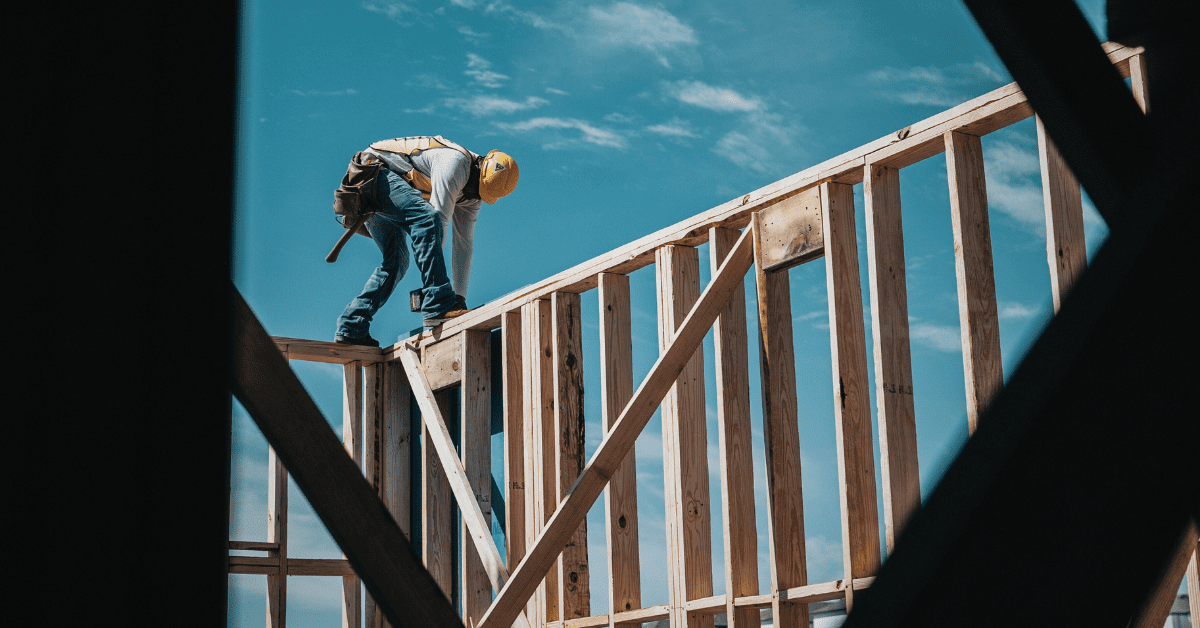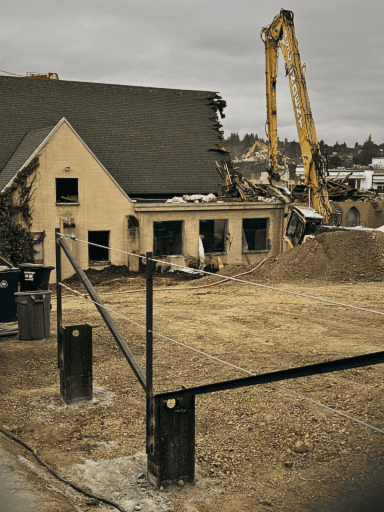I walked down the street one day this spring to watch the wreckers tear down the church building where I used to work. Here in Seattle, the streets are full of construction equipment and big square boxes of new luxury housing. People get sentimental about the old things passing away, even when it’s an old church building they’ve never entered.
As the one who grabbed the mop when the toilets overflowed, offered apologies when the heat wasn’t working (again), and prayed the earthquake wouldn’t come when we were inside the rickety old place, I was less sentimental than most.
The church I planted, Columbia City Church of Hope, had been meeting there for 13 years. Once the demolition and construction are completed, we’ll move back into a new, smaller space alongside 87 families in the affordable apartments that a community organization is building on the block.
It is, in every way, a change for the better. But change is always stressful, and I admit that I shed a few tears watching the giant mechanic jaw bite off and digest into rubble the place that held so many memories and stories.
The Church is called to be constantly reforming, and the first step of re-forming is un-forming, breaking down what has been before trying new ways of putting it all back together. It is what Richard Rohr calls the universal pattern—the order, disorder, and reorder that we see in the changing of the seasons, the life and crucifixion and resurrection of Jesus, and in the literal and metaphorical experiences all around us of construction, deconstruction, and reconstruction.
The deconstruction is the most painful. We would do anything to avoid it, to skip ahead to the exciting phase of rebuilding. But unless we deal with the fatal cracks in the foundation and clear away the rubble, nothing truly new will ever be built.
When I was called by my denomination to become a mission developer in my own beloved neighborhood, I embraced the challenge with delight. The synod let us have space in the building of a recently closed Lutheran congregation; we had support and freedom to create a ministry that took whatever shape it wanted—a brand new thing!
And it has been a wonderful, challenging, inspiring experience to see a new church plant take root. We officially incorporated as a congregation in 2017, but it hardly feels like we’ve arrived. Even before the building came down, it almost feels like we’re starting a new ministry every year or two.
Because people are complicated, and everyone is in the midst of their own cycles of order, disorder, and reorder (it is the universal pattern, after all). Some people are moving into this neighborhood as others are moving out. Some are starting grad school or having babies or retiring and moving out of the city to where the rent is cheaper. Some people are deconstructing theologies they’ve inherited and are ready to move on once they’ve healed from their religious trauma. Some are meeting actual Christians for the first time and working through long lists of negative stereotypes. Some people encounter God at church, but also on hikes and in community choirs and quiet contemplation at home and family gatherings—and there are only so many hours in a weekend.
The church is always reforming, in every generation and in every season. This can be exhausting when it feels like it’s falling apart. But what if it’s a necessary, ongoing part of messily overlapping cycles of change? The Church is bigger than the building, bigger than the congregation or the denomination. The Spirit moves in mysterious ways, and part of coming together into a new thing is the undoing of old things.
The church is always dying, always rising, because we are—as individuals and as a body—made in the image of a crucified God.
Watching my old church building come down, the hungry beast with the long arm was making all the noise and all the dust, commanding all the attention. But when I looked down right in front of me, I could see there were steel beams already implanted in the ground, the corner pillars of the new space already taking form. As a pastor with 20 years of experience, maybe I should not be surprised by this evidence of living in the tension of the already / not yet. The old is always passing; the new is always coming into being. Christ has died, Christ is risen, Christ will come again.
Yes, God is doing a new thing among us! And God is undoing a lot of old things. And a bunch of middle-aged things just keep plugging along because that’s what they need to do. For now. Always reforming, just like the Reformers said 500 years ago. And always deconstructing, because that’s part of it. God is in the pile of rubble. God is in the corner pillars of the new foundation. And God is in the vision of a future that is only beginning to come into focus.




